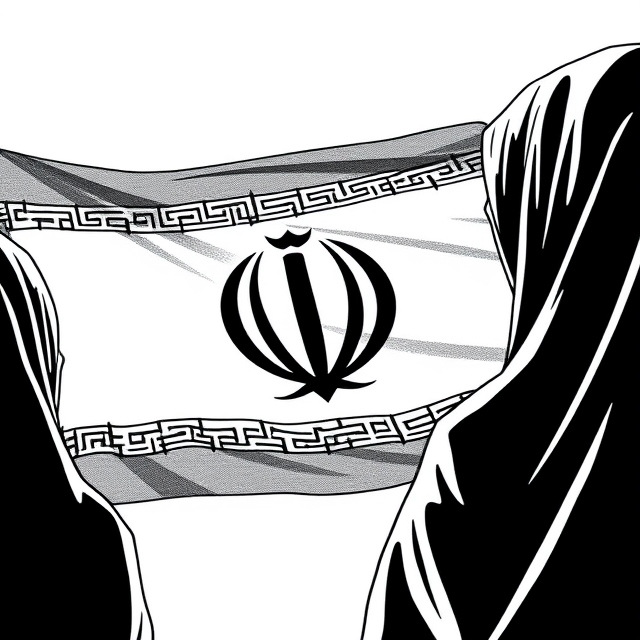
Severe Penalties for Women: Iran’s new hijab law enforces harsh punishments, including 5-15 years of imprisonment, public flogging, or even the death penalty under vague charges like “corruption on Earth.”
Global Backlash: Human rights organizations, including Amnesty International, condemn the legislation for criminalizing dissent, stripping women’s rights, and encouraging state-sanctioned harassment.
Escalating Repression: The law, introduced two years after Mahsa Amini’s death, intensifies Iran’s crackdown on women’s freedoms with measures like “hijab clinics” to enforce conformity.
Iran is set to introduce its harshest and most draconian mandatory morality laws this week, sparking an international outcry over the fate of women in the country. The legislation mandates severe penalties for any woman accused of defying Iran’s strict dress code, with punishments ranging from long prison sentences to the death penalty. This chilling new law enforces what is called the “culture of chastity and hijab,” and women who do not comply could be branded as criminals for promoting nudity, indecency, or simply “improper dressing.” If these measures take effect, they will redefine the lengths to which Iran’s government is willing to go in policing women’s bodies.
Under the proposed laws, repeat offenders who violate Iran’s compulsory hijab rules could face imprisonment for 5 to 15 years, exorbitant fines reaching up to $15,700, or even flogging in public. With these severe sanctions ratified by the authorities, the legislation also targets foreign media and international organizations. Under Article 37, anyone found promoting improper dressing or unveiling to foreign audiences will face even harsher penalties—up to 10 years in prison and fines of up to £12,500.

Source: Chughtai Public Library
What is perhaps most horrifying is that the legislation references Iran’s infamous Islamic Penal Code, invoking Article 286, which categorizes “corruption on Earth” as an offense punishable by death. This terrifying clause could lead to executions for women and girls merely involved in peaceful activism or sharing videos of themselves without a hijab. This potential for capital punishment has caused widespread horror and shock, as human rights organizations warn of the global ramifications this could have.

International NGOs have condemned the law, emphasising that it criminalises peaceful dissent, strips women of their fundamental rights, and punishes them for asserting their autonomy. The group has particularly expressed concern over the law’s provision that offers legal immunity to those who enforce the compulsory veiling requirement, allowing them to act as self-appointed agents of the regime with no fear of legal repercussions. Notably, the law targets not just women who defy the dress code but also any individuals who attempt to intervene on their behalf—attempts to defend women from unlawful detention or harassment could also lead to imprisonment or fines under Article 60.
The timing of this legislation couldn’t be more stark, as it comes only two years after the tragic death of Mahsa Amini. The 22-year-old Kurdish woman’s death while in police custody after being detained for not wearing a proper hijab ignited nationwide protests and a massive push for reform. These protests—desperate calls for justice and equality—have been met with brutal crackdowns, including last month’s heart-wrenching case of a young Iranian student who protested the hijab law by stripping off her clothes in public, only to be committed to a psychiatric institution against her will. This tragic and terrifying moment encapsulates the intensity of what women now face in Iran as they push back against their oppressive government.

In response to the ongoing defiance, the regime has announced the establishment of “hijab clinics,” facilities intended to brainwash and coerce women into accepting the state’s stringent dress code. This further stokes outrage, as it signals an intensified war on the basic freedoms of Iranian women, one that not only violates their autonomy but seeks to erase any trace of dissent. The global community watches in horror as Iran’s leaders tighten their grip on half the population, and human rights organizations, world leaders, and citizens around the world rise to denounce the escalating violence and repression.
With every passing day, this battle for basic rights in Iran becomes not only a national issue but a global one. The world must act before it’s too late to save the lives of women facing the gravest of consequences for simply choosing their own identity.
References:
- https://swarajyamag.com/news-brief/irans-new-hijab-law-death-penalty-and-harsh-
punishments-for-improper-dressing-spark-global-outrage - https://www.fdd.org/analysis/2024/12/13/an-assault-on-womens-rights-un-experts-call- on-iran-to-repeal-hijab-law/
Shobhil Shrivastava is a postgraduate student specializing in Diplomacy, Law, and Business at O.P. Jindal Global University. His academic focus spans International Relations, Geopolitics, Defence, and Security. Views expressed are the author’s own.
